
Everglades National Park: The River of Grass
Welcome to Everglades National Park, a unique and stunning ecosystem in southern Florida. This UNESCO World Heritage site is a vast, tropical wetland known as the 'River of Grass.' It spans over 1.5 million acres and is home to a diverse array of wildlife, including alligators, manatees, and the elusive Florida panther. Visitors can explore the park's diverse habitats by taking airboat tours, canoeing through mangrove tunnels, or hiking on scenic trails. The park offers a rare glimpse into a subtropical wilderness that is unlike any other place in the United States. Birdwatchers will be delighted by the chance to spot over 300 bird species, including the endangered snail kite and the colorful roseate spoonbill. The Everglades is a haven for photographers and nature enthusiasts, offering countless opportunities to capture its beauty. Whether you're an adventure seeker or a nature lover, Everglades National Park provides an unforgettable experience. From its tranquil waterways to its vibrant wildlife, this park is a must-visit destination for anyone traveling to Florida.
Local tips in Everglades National Park
- Visit during the dry season (November to April) for the best wildlife viewing and more comfortable weather.
- Wear long sleeves and pants to protect yourself from mosquitoes.
- Bring binoculars for birdwatching; the park is home to over 300 bird species.
- Stay on marked trails to avoid getting lost and to protect the natural habitat.
- Consider taking a guided tour to learn more about the park's unique ecosystem and history.
Everglades National Park: The River of Grass
Welcome to Everglades National Park, a unique and stunning ecosystem in southern Florida. This UNESCO World Heritage site is a vast, tropical wetland known as the 'River of Grass.' It spans over 1.5 million acres and is home to a diverse array of wildlife, including alligators, manatees, and the elusive Florida panther. Visitors can explore the park's diverse habitats by taking airboat tours, canoeing through mangrove tunnels, or hiking on scenic trails. The park offers a rare glimpse into a subtropical wilderness that is unlike any other place in the United States. Birdwatchers will be delighted by the chance to spot over 300 bird species, including the endangered snail kite and the colorful roseate spoonbill. The Everglades is a haven for photographers and nature enthusiasts, offering countless opportunities to capture its beauty. Whether you're an adventure seeker or a nature lover, Everglades National Park provides an unforgettable experience. From its tranquil waterways to its vibrant wildlife, this park is a must-visit destination for anyone traveling to Florida.
When is the best time to go to Everglades National Park?
Iconic landmarks you can’t miss
Everglades Holiday Park Airboat Tours and Rides
Experience the thrill of airboat tours and witness Florida's unique wildlife at Everglades Holiday Park, a must-visit destination for nature lovers.
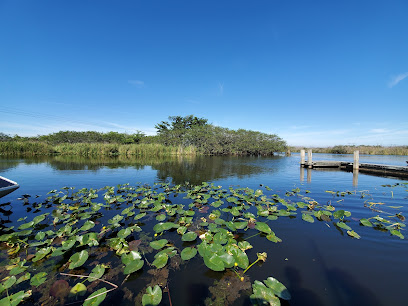
Everglades Safari Park
Discover the mesmerizing wildlife and breathtaking scenery at Everglades Safari Park, an essential stop for nature lovers in Florida.
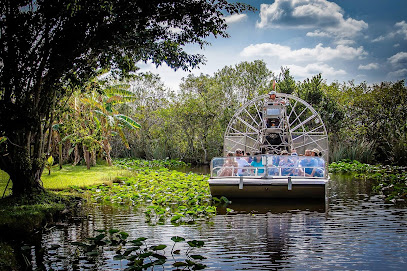
Big Cypress National Preserve
Explore the vast beauty of Big Cypress National Preserve, where nature thrives and adventure awaits in the heart of Florida's wilderness.
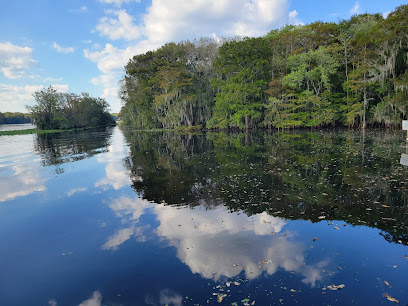
Ernest F. Coe Visitor Center
Explore the gateway to Everglades National Park at the Ernest F. Coe Visitor Center, your hub for adventure and discovery in Florida's stunning wilderness.
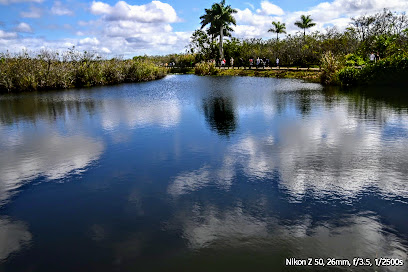
Everglades
Discover the Everglades, Florida's stunning wetland paradise, rich in wildlife and natural beauty, ideal for eco-adventures and unforgettable experiences.
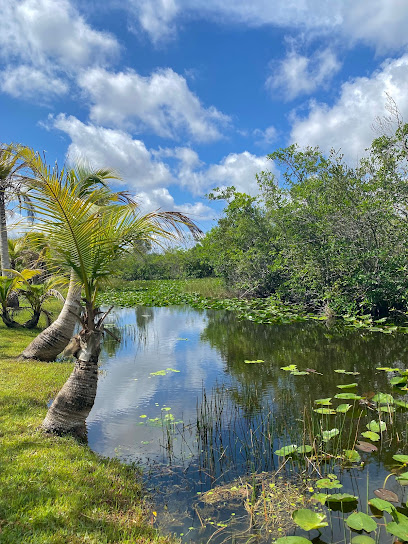
Guy Bradley Visitor Center (at Flamingo)
Explore Florida's stunning Everglades at the Guy Bradley Visitor Center, your gateway to adventure, wildlife, and natural beauty.
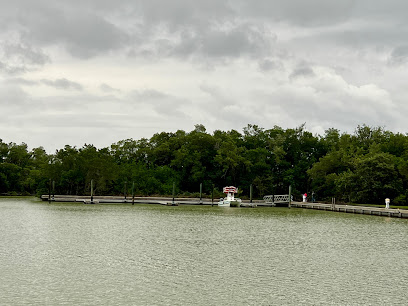
Pa-Hay-Okee Lookout Tower
Discover the stunning vistas at Pa-Hay-Okee Lookout Tower in the Everglades, where nature and breathtaking views converge.
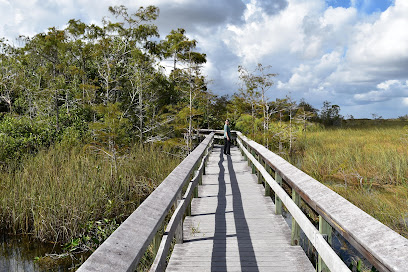
Everglades and Francis S. Taylor Wildlife Management Area - WCA 3B
Immerse yourself in the breathtaking landscapes and diverse wildlife of the Everglades and Francis S. Taylor Wildlife Management Area, a true nature lover's paradise.
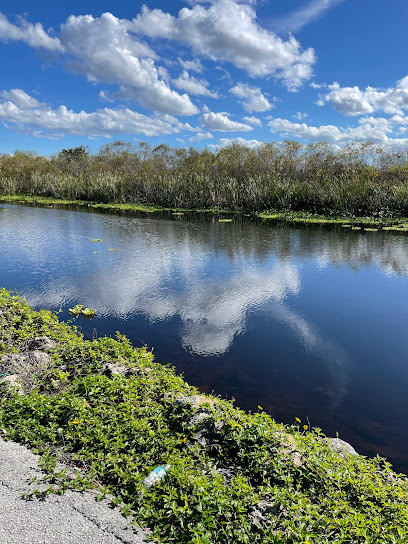
HM69 Nike Missile Base
Discover the HM69 Nike Missile Base in Homestead, FL – a historical landmark that showcases Cold War military history and defense strategies.
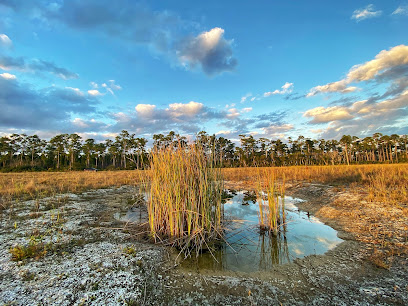
Everglades National Park Institute
Explore the Everglades National Park Institute for an immersive experience into Florida's unique ecosystems and conservation efforts.
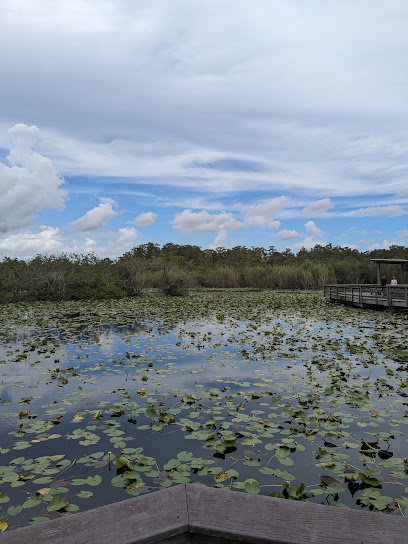
Everglades National Park Sign
Discover the wonders of Everglades National Park, a UNESCO World Heritage Site filled with diverse wildlife and stunning natural landscapes.
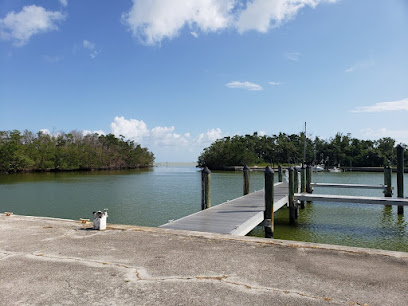
Unmissable attractions to see
Everglades Holiday Park Airboat Tours and Rides
Experience thrilling airboat tours and explore the wildlife-rich Everglades at Everglades Holiday Park, a premier destination for nature lovers.
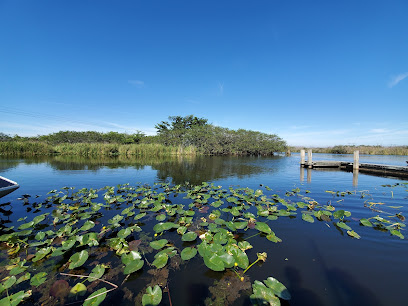
Everglades Safari Park
Discover the beauty of the Everglades at Everglades Safari Park, where adventure and wildlife encounters await in Miami's unique ecosystem.
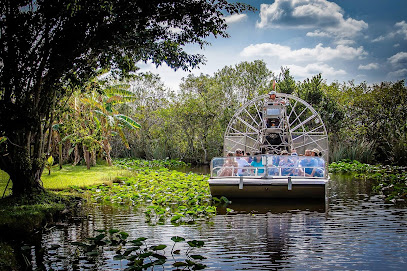
Schnebly Redland's Winery & Brewery
Discover the vibrant flavors of Florida at Schnebly Redland's Winery & Brewery, where exquisite wines, craft beers, and live music await.
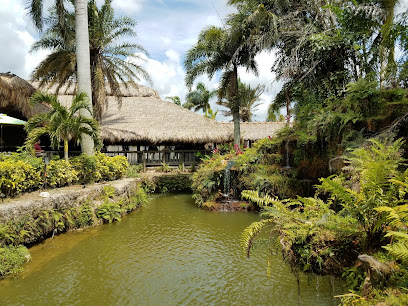
Everglades Alligator Farm
Explore the Everglades Alligator Farm, a thrilling wildlife park offering unforgettable encounters with alligators and diverse wildlife in Florida's beautiful Everglades.
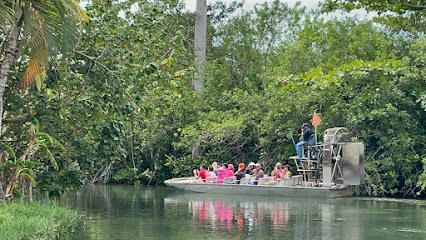
Sawgrass Recreation Park
Explore the pristine beauty of the Everglades at Sawgrass Recreation Park, a wildlife haven offering thrilling airboat tours and educational exhibits.
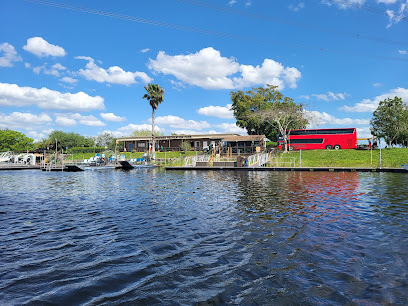
Coopertown The Original Airboat Tour
Discover the thrilling beauty of Florida's Everglades on a high-speed adventure with Coopertown Airboat Tours, where nature meets excitement.
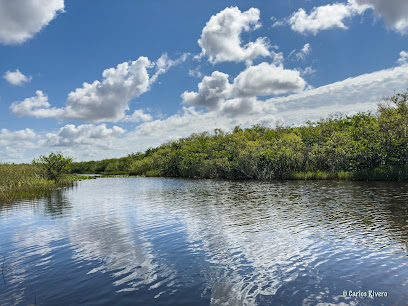
Fairchild Tropical Botanic Garden
Discover the vibrant beauty of Fairchild Tropical Botanic Garden, a serene escape showcasing the wonders of tropical flora in Coral Gables.
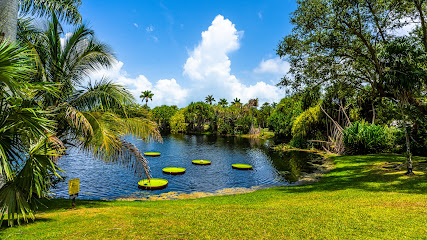
Gator Park
Explore the thrilling world of Gator Park in Miami, where adventure meets wildlife in the heart of the Everglades.
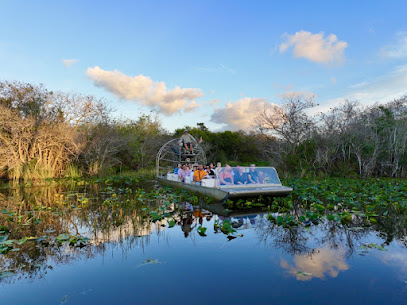
Coral Castle
Discover the magical Coral Castle, a historical landmark in Homestead, Florida, showcasing extraordinary craftsmanship and a captivating love story.
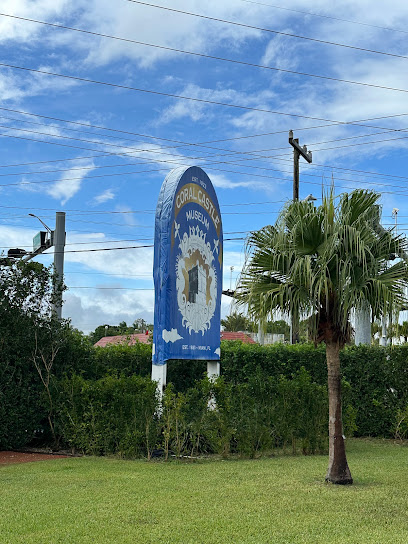
Shark Valley Observation Tower
Discover breathtaking views and diverse wildlife at Shark Valley Observation Tower, a must-visit for nature lovers in the Everglades.
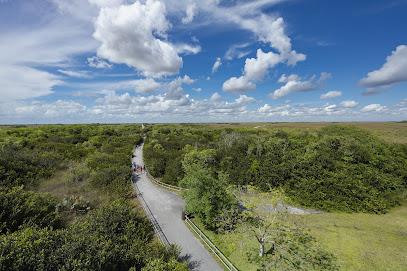
Fruit & Spice Park
Explore the vibrant world of exotic fruits and spices at Fruit & Spice Park, a tropical paradise in Homestead, Florida, perfect for nature lovers and food enthusiasts.
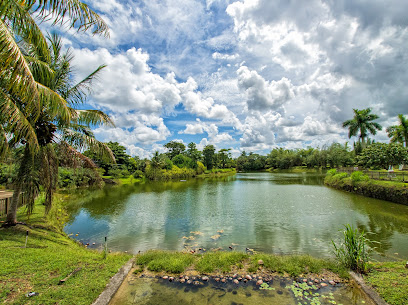
Shark Valley Tram Tours
Experience the beauty of the Everglades at Shark Valley Tram Tours, where wildlife and stunning landscapes await every traveler.
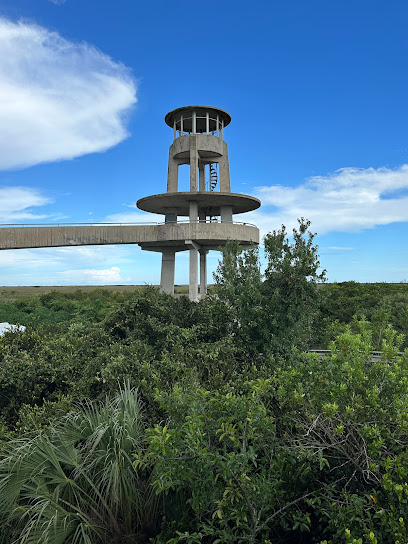
Everglades Wildlife Management Area - Water Conservation Area 2B
Discover Florida's wild side at Everglades Wildlife Management Area - Water Conservation Area 2B, a paradise for nature lovers and wildlife enthusiasts.
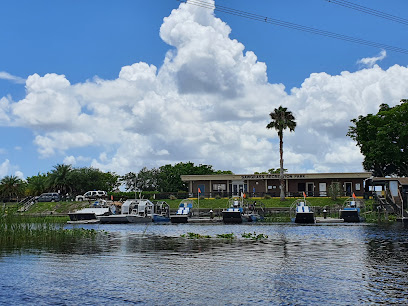
ZWF Miami
Experience a wildlife adventure at ZWF Miami, a unique zoo and wildlife refuge dedicated to conservation and education.
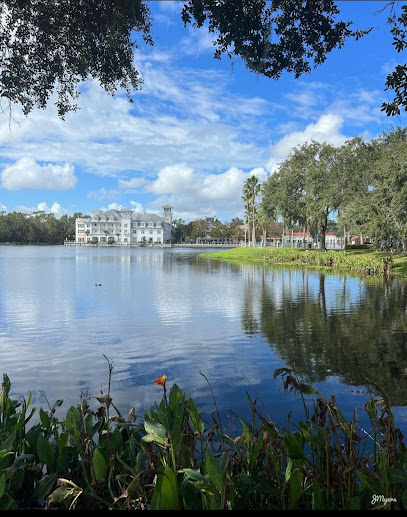
Royal Palm Visitor Center
Explore the Royal Palm Visitor Center – your gateway to the Everglades' natural wonders and rich biodiversity.
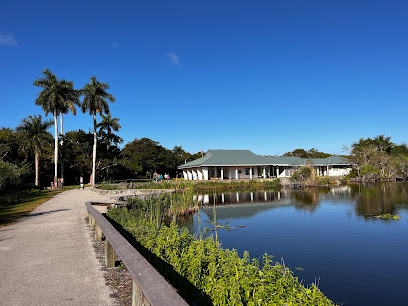
Essential places to dine
Camellia Street Grill
Experience delicious seafood and grill specialties at Camellia Street Grill in Everglades City - a true taste of Florida!
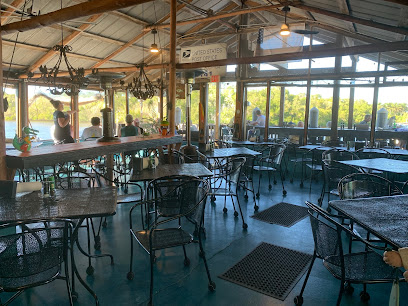
Everglades Gator Grill
Experience authentic Florida cuisine at Everglades Gator Grill—where local flavors meet Southern hospitality in a charming setting.
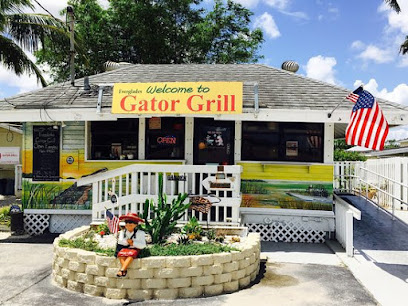
Captain Morgan's Seafood Grill Corp
Experience fresh seafood with cultural flair at Captain Morgan's Seafood Grill in Everglades City—where every meal tells a story.
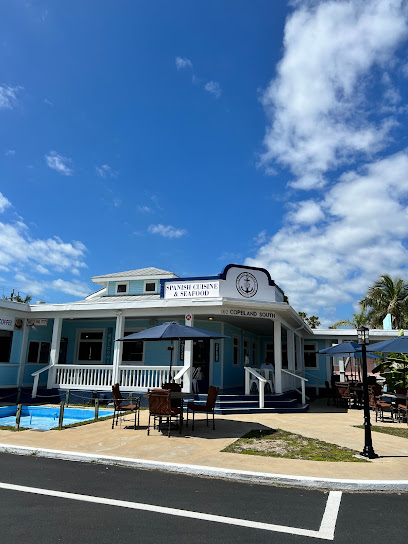
The Diving Pelican Restaurant & Bar
Discover fresh seafood delights at The Diving Pelican Restaurant & Bar in Everglades City - where nature meets flavor!
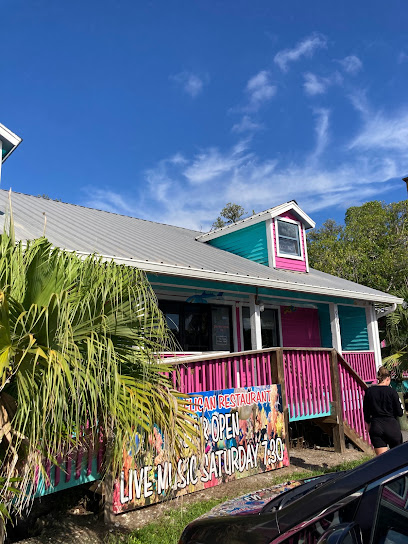
Markets, malls and hidden boutiques
Everglades National Park
Experience the breathtaking beauty and diverse wildlife of Everglades National Park, Florida's premier natural wonder and a UNESCO World Heritage site.

Walmart Supercenter
Experience the ultimate shopping destination at Walmart Supercenter in Kendall, offering everything from groceries to electronics at budget-friendly prices.

Everglades Safari Park
Explore the enchanting Everglades at Everglades Safari Park, where thrilling airboat rides and diverse wildlife await your discovery.
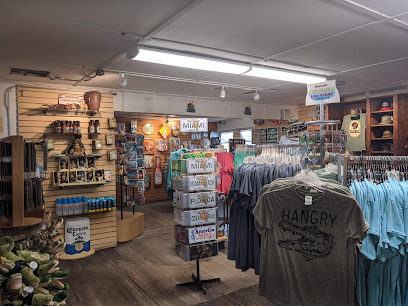
Big Cypress National Preserve
Explore the breathtaking landscapes and diverse wildlife of Big Cypress National Preserve, a natural haven in Florida's Everglades.
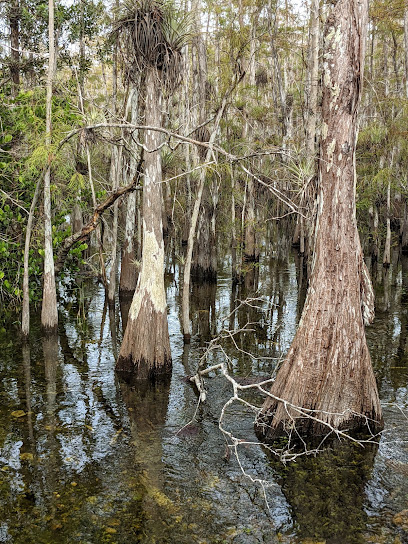
Five Star Jewelers
Explore the exquisite collection at Five Star Jewelers in Miami, where luxury meets expert craftsmanship and exceptional service.
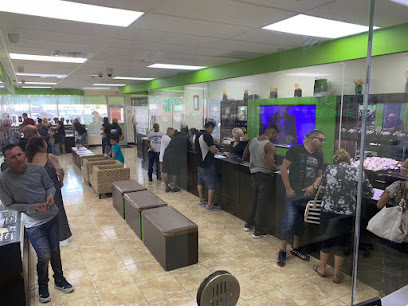
Ernest F. Coe Visitor Center
Discover the gateway to the Everglades at the Ernest F. Coe Visitor Center, where nature lovers embark on unforgettable adventures.
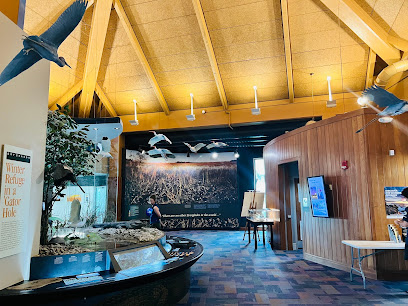
ALDI
Discover unbeatable prices on quality groceries at ALDI in Kendall, Florida - perfect for tourists looking to save.
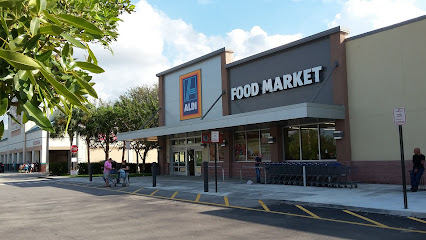
Guy Bradley Visitor Center (at Flamingo)
Explore the beauty of the Everglades at the Guy Bradley Visitor Center, your essential starting point for adventure in Flamingo, Florida.
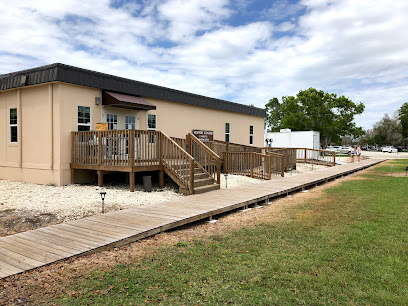
Shark Valley Tram Tours
Discover the stunning Everglades on a tram tour, bike rentals, and more at Shark Valley Tram Tours, an unforgettable eco-adventure in Florida.
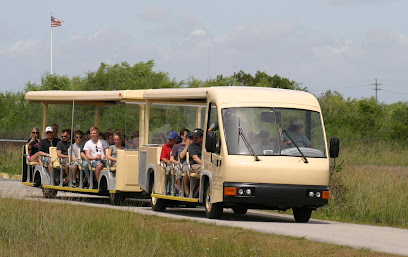
The Harmony Store
Explore The Harmony Store in Kendall for unique gifts, crystals, jewelry, and alternative wellness supplies in a tranquil shopping environment.
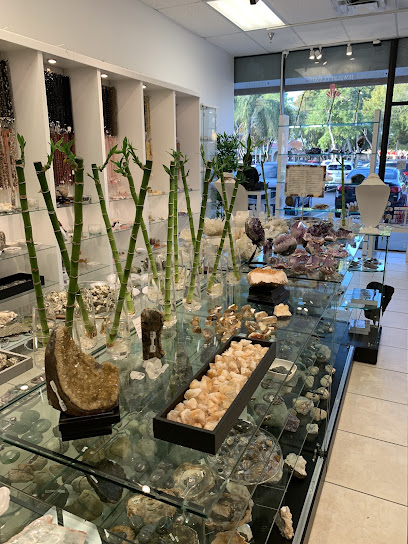
Starbucks
Discover the perfect blend of comfort and flavor at Starbucks in Miami's West End, your go-to coffee destination.
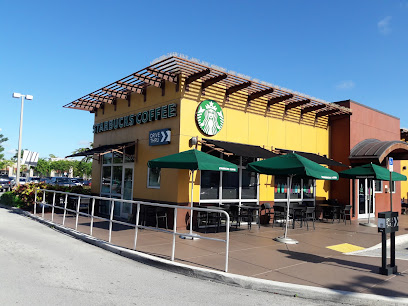
Smallwood Store
Explore the historical Smallwood Store in Chokoloskee, Florida - a unique gift shop and museum that showcases the rich heritage of the region.
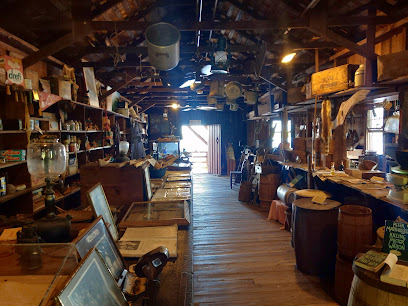
GameStop
Explore Miami's GameStop for the latest games, collectibles, and a vibrant community of gaming enthusiasts in Kendall Plaza.

Grain of Sand by Aneth
Explore Grain of Sand by Aneth for exquisite handcrafted jewelry and fashion accessories in the heart of Miami, perfect for every occasion.
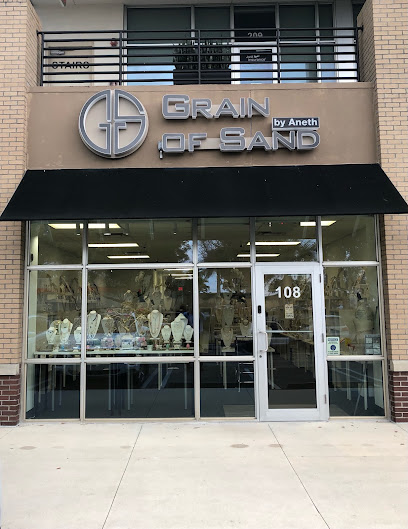
Shell
Conveniently located in West Miami, the Shell station offers gas, snacks, and meals to fuel your adventures in the city.
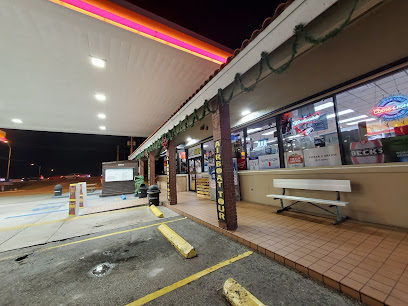
Essential bars & hidden hideouts
Miccosukee Casino & Resort
Discover the thrills of Miccosukee Casino & Resort in Miami, where gaming excitement meets luxurious relaxation and cultural heritage.
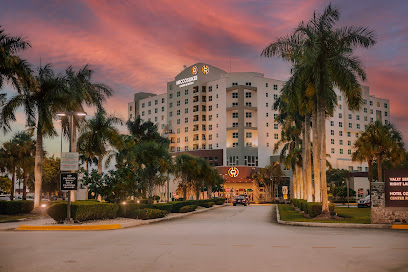
Camellia Street Grill
Experience the best of Everglades City's seafood and grill cuisine at Camellia Street Grill, where fresh flavors meet a warm, inviting atmosphere.
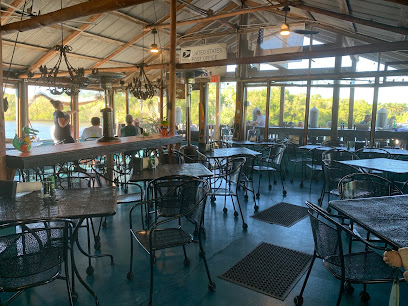
Keg South Of Kendall
Discover Keg South Of Kendall, a lively American restaurant and pub in Miami offering delicious food, sports entertainment, and a vibrant atmosphere.
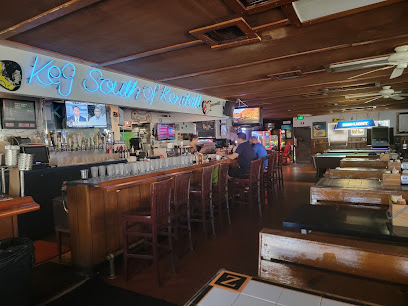
Walk-On's Sports Bistreaux - Kendall Restaurant
Discover the ultimate sports dining experience at Walk-On's Sports Bistreaux in Kendall, Miami - where flavor meets excitement in a lively atmosphere.
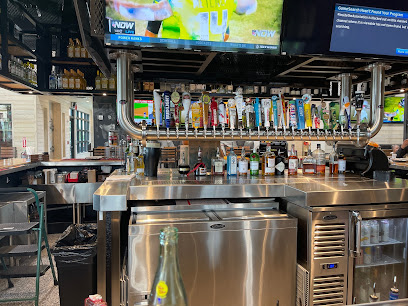
Last Chance Bar & Package
Discover the lively charm of Last Chance Bar & Package, a favorite local bar in Homestead, Florida, offering delicious food and drinks at affordable prices.
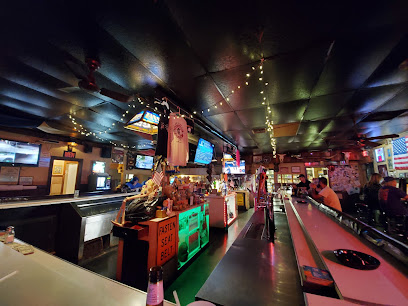
Strange Beast
Discover Strange Beast, a brewpub in Miami offering unique craft beers and delicious pizzas in a vibrant atmosphere.
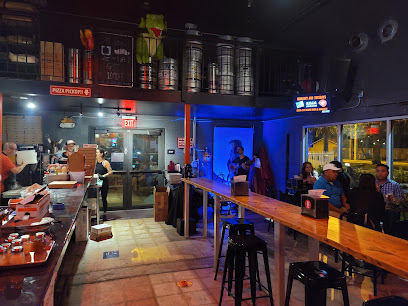
Everglades Rod & Gun Club
Discover the Everglades Rod & Gun Club – where rustic charm meets culinary excellence in the heart of Florida's wetlands.

Miami Brewing Company
Discover the vibrant craft beer scene at Miami Brewing Company, where local flavors and artisanal brews come together in a lively gastropub setting.
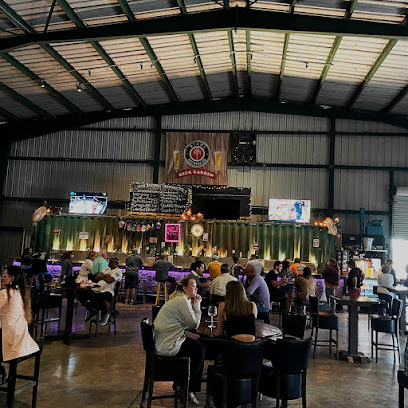
City Hall Bistro & Martini Bar
Discover the vibrant culinary scene at City Hall Bistro & Martini Bar in Homestead, where exquisite martinis and delicious dishes await you.
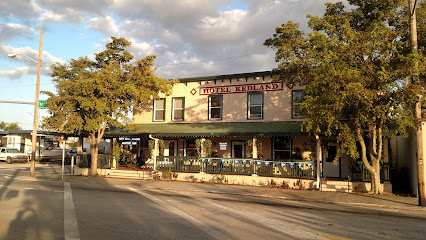
Captain Morgan's Seafood Grill Corp
Experience the vibrant flavors of seafood and Cuban cuisine at Captain Morgan's Seafood Grill in Everglades City, a family-friendly dining gem.
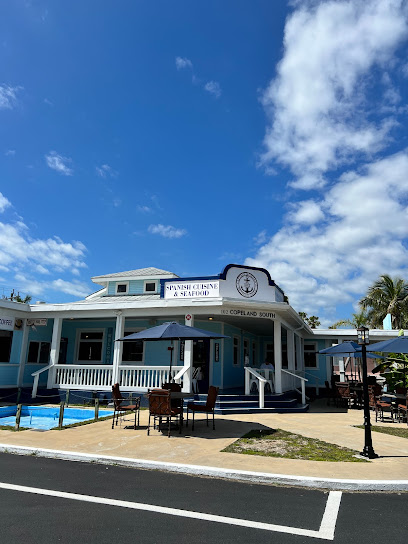
Eddie's Place
Discover the lively nightlife at Eddie's Place, Miami's premier bar with cocktails, karaoke, and sports entertainment for an unforgettable experience.
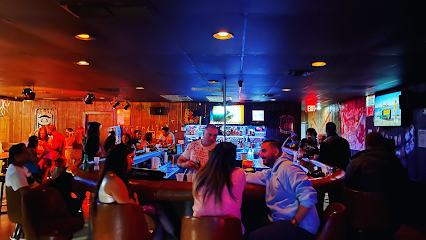
The Diving Pelican Restaurant & Bar
Discover the culinary treasures of Everglades City at The Diving Pelican Restaurant & Bar, where fresh seafood meets breathtaking views.
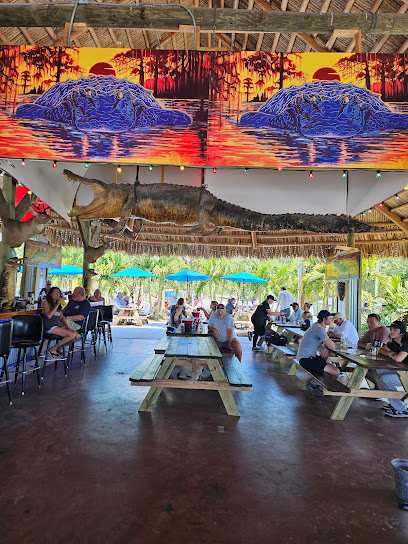
Mellow Grapes Miami
Discover the exquisite world of wines at Mellow Grapes Miami, where every sip tells a story in a cozy and inviting atmosphere.

Gator Hole Bar
Experience the true essence of Florida at Gator Hole Bar, where local flavors and laid-back vibes meet in Everglades City.
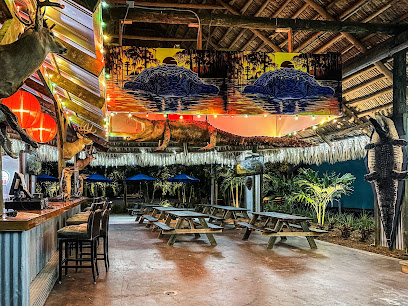
Tempt Lounge
Discover the allure of Tempt Lounge, where innovative cocktails and vibrant nightlife create the ultimate Miami experience.
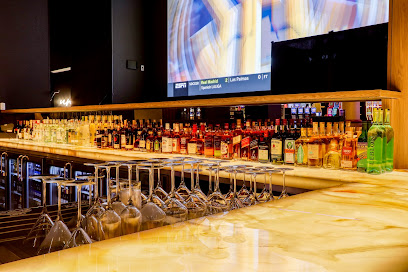
Local Phrases about Everglades National Park
-
- HelloHowdy
[haw-dee] - GoodbyeSee ya later
[see ya lay-tur] - YesYep
[yep] - NoNah
[na] - Please/You're welcomePlease/No worries
[pleez/no wur-eez] - Thank youThanks
[thanks] - Excuse me/SorryPardon me/My bad
[par-dun me/my bad] - How are you?Howdy partner?
[haw-dee par-tner?] - Fine. And you?Just dandy. How 'bout you?
[just dan-dee. how bout yu?] - Do you speak English?Ya speak English?
[ya speak ing-lish?] - I don't understandI'm lost in the sauce
[im lost in the saws]
- HelloHowdy
-
- I'd like to see the menu, pleaseShow me what's cookin', will ya?
[show me whats cook-in, wil ya?] - I don't eat meatI'm a veggie
[im a ved-jee] - Cheers!Bottoms up!
[bot-ums up] - I would like to pay, pleaseCheck, please
[check, please]
- I'd like to see the menu, pleaseShow me what's cookin', will ya?
-
- Help!SOS!
[SOS] - Go away!Scram!
[skram] - Call the Police!Get the fuzz!
[get the fuzz] - Call a doctor!Ring up a doc!
[ring up a doc] - I'm lostI'm discombobulated
[im dis-com-bob-u-lay-ted] - I'm illI'm under the weather
[im under the we-ther]
- Help!SOS!
-
- I'd like to buy...I'm fixin' to buy...
[im fix-in to buy] - I'm just lookingJust browsin'
[just brow-sin] - How much is it?What's the damage?
[whats the dam-ij] - That's too expensiveThat's a rip-off
[thats a rip-off] - Can you lower the price?Can you wiggle on the cost?
[can yu wig-ul on the kost]
- I'd like to buy...I'm fixin' to buy...
-
- What time is it?What's the time o' day?
[whats the time o day] - It's one o'clockIt's one
[its one] - Half past (10)Ten-thirty
[ten-thur-tee] - MorningMornin'
[morn-in] - AfternoonAfternoon
[after-noon] - EveningEvenin'
[even-in] - YesterdayYest'day
[yest'day] - TodayToday
[to-day] - TomorrowTomorra
[tom-or-ra] - 1One
[wun] - 2Two
[too] - 3Three
[three] - 4Four
[four] - 5Five
[fiv] - 6Six
[six] - 7Seven
[sev-en] - 8Eight
[ate] - 9Nine
[nine] - 10Ten
[ten]
- What time is it?What's the time o' day?
-
- Where's a/the...?Where's the...
[wheres the] - What's the address?What's the addy?
[whats the add-ee] - Can you show me (on the map)?Can you point me (on the map)?
[can you point me (on the map)] - When's the next (bus)?When's the next (bus)?
[whens the next (bus)] - A ticket (to ....)A ticket (to ....)
[a ticket (to)]
- Where's a/the...?Where's the...
History of Everglades National Park
-
Long before the Everglades became a national park, it was home to the indigenous Calusa and Tequesta tribes. These Native American tribes thrived in the region for thousands of years, utilizing the abundant natural resources for fishing, hunting, and gathering. They constructed intricate networks of canals and shell mounds, leaving behind archaeological evidence of their complex societies.
-
In the 16th century, Spanish explorers, including Juan Ponce de León, arrived in Florida, marking the beginning of European attempts to colonize the region. The Everglades, with its challenging terrain and climate, remained largely unexplored and undeveloped during this period. The indigenous populations faced dramatic changes due to disease, conflict, and displacement brought by the European settlers.
-
The 19th century saw the rise of the Seminole tribe, descendants of various Native American groups, who sought refuge in the Everglades. As American settlers expanded into Florida, conflicts arose, leading to the Seminole Wars (1817-1858). The dense and swampy terrain of the Everglades provided the Seminoles with a strategic advantage, allowing them to resist removal efforts for decades.
-
By the late 19th and early 20th centuries, the unique ecosystem of the Everglades began to attract scientific and public interest. Naturalists like Charles Torrey Simpson and conservationists such as Ernest F. Coe advocated for the protection of the Everglades. Their efforts helped raise awareness about the ecological importance of the region and laid the groundwork for future conservation.
-
In 1947, after years of advocacy and planning, Everglades National Park was established, making it the first national park created to protect a fragile ecosystem. President Harry S. Truman dedicated the park, recognizing its unique biodiversity and the need to preserve it for future generations. The park's creation marked a significant milestone in the history of American conservation.
-
Throughout the late 20th and early 21st centuries, the Everglades faced numerous environmental challenges, including water diversion, pollution, and invasive species. Large-scale restoration projects, such as the Comprehensive Everglades Restoration Plan (CERP) launched in 2000, aimed to address these issues and restore the natural flow of water to the ecosystem. These ongoing efforts highlight the importance of preserving the Everglades' unique environment.
-
Today, Everglades National Park is not only a haven for wildlife but also a place of cultural significance. It attracts millions of visitors each year who come to experience its natural beauty and learn about its rich history. The park continues to be a symbol of the delicate balance between human activity and environmental preservation, illustrating the ongoing need to protect natural landscapes for future generations.
Everglades National Park Essentials
-
Everglades National Park is located in southern Florida, approximately 50 miles west of Miami. The closest major airports are Miami International Airport (MIA) and Fort Lauderdale-Hollywood International Airport (FLL). From these airports, you can rent a car or take a shuttle service to the park. The main entrances to the park are the Ernest F. Coe Visitor Center near Homestead, the Shark Valley Visitor Center off US Highway 41, and the Gulf Coast Visitor Center in Everglades City.
-
Within Everglades National Park, the best way to get around is by car, bicycle, or boat. Several ranger-led tours and shuttle services are available, as well as bike rentals. Boat tours can be arranged at the Gulf Coast Visitor Center and Flamingo Marina. Keep in mind that some areas of the park are only accessible by boat.
-
The official currency in the United States is the US Dollar (USD). Credit and debit cards are widely accepted at visitor centers, gift shops, and tour services within the park. However, it is advisable to carry some cash for entrance fees, smaller vendors, and situations where card payments may not be possible. ATMs are available in nearby towns such as Homestead and Everglades City.
-
Everglades National Park is generally safe for tourists, but it's important to take standard precautions. Avoid venturing into undeveloped areas alone and always stay on designated trails. Be aware of wildlife, such as alligators and snakes, and maintain a safe distance. In nearby towns, exercise caution by avoiding poorly lit areas at night and securing valuables. There are no specific high-crime areas targeting tourists, but it's always best to stay vigilant.
-
In case of emergency, dial 911 for immediate assistance. Park rangers are also available to help with emergencies and can be contacted at visitor centers. Medical facilities are located in nearby towns such as Homestead and Everglades City. It is recommended to have travel insurance that covers medical emergencies. For minor health issues, there are pharmacies in the surrounding towns where you can purchase over-the-counter medications.
-
Fashion: Do wear lightweight, breathable clothing and sturdy shoes suitable for hiking. Don't forget sun protection, such as hats and sunscreen. Religion: Do be respectful of local customs and traditions if you encounter any cultural or religious sites. Public Transport: Do use the park's shuttle services and guided tours for convenience. Don't rely solely on public transportation, as it is limited in and around the park. Greetings: Do greet people with a smile and a friendly hello. Eating & Drinking: Do stay hydrated and bring plenty of water. Don't feed or disturb the wildlife.
-
To experience Everglades National Park like a local, consider joining a ranger-led tour or participating in a volunteer program. Visit during the dry season (December to April) for the best wildlife viewing opportunities. Try local cuisine in nearby towns, such as stone crab in Everglades City. Don't miss the opportunity to take an airboat tour, which is a popular way to explore the park's waterways and see its unique ecosystem up close.
Trending Landmarks in Everglades National Park
-
Everglades Holiday Park Airboat Tours and Rides
-
Everglades Safari Park
-
Big Cypress National Preserve
-
Ernest F. Coe Visitor Center
-
Everglades
-
Guy Bradley Visitor Center (at Flamingo)
-
Pa-Hay-Okee Lookout Tower
-
Everglades and Francis S. Taylor Wildlife Management Area - WCA 3B
-
HM69 Nike Missile Base
-
Everglades National Park Institute
-
Everglades National Park Sign
Nearby Cities to Everglades National Park
-
Things To Do in Key Largo
-
Things To Do in Miami
-
Things To Do in Fort Lauderdale
-
Things To Do in Key West
-
Things To Do in Bimini
-
Things To Do in Cape Coral
-
Things To Do in Fort Myers
-
Things To Do in Stuart
-
Things To Do in Ft. Pierce
-
Things To Do in Sebring
-
Things To Do in Lucaya
-
Things To Do in Freeport
-
Things To Do in Sarasota
-
Things To Do in Andros Town
-
Things To Do in St. Petersburg













